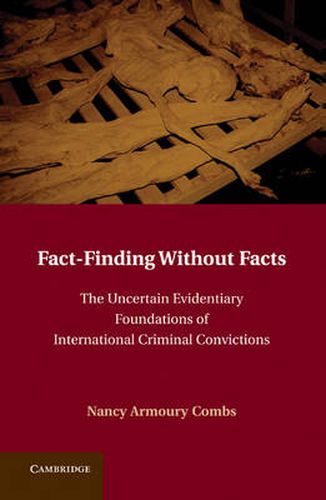Readings Newsletter
Become a Readings Member to make your shopping experience even easier.
Sign in or sign up for free!
You’re not far away from qualifying for FREE standard shipping within Australia
You’ve qualified for FREE standard shipping within Australia
The cart is loading…






Fact-Finding Without Facts explores international criminal fact-finding - empirically, conceptually, and normatively. After reviewing thousands of pages of transcripts from various international criminal tribunals, the author reveals that international criminal trials are beset by numerous and severe fact-finding impediments that substantially impair the tribunals’ ability to determine who did what to whom. These fact-finding impediments have heretofore received virtually no publicity, let alone scholarly treatment, and they are deeply troubling not only because they raise grave concerns about the accuracy of the judgments currently being issued but because they can be expected to similarly impair the next generation of international trials that will be held at the International Criminal Court. After setting forth her empirical findings, the author considers their conceptual and normative implications. The author concludes that international criminal tribunals purport a fact-finding competence that they do not possess and, as a consequence, base their judgments on a less precise, more amorphous method of fact-finding than they publicly acknowledge.
$9.00 standard shipping within Australia
FREE standard shipping within Australia for orders over $100.00
Express & International shipping calculated at checkout
Fact-Finding Without Facts explores international criminal fact-finding - empirically, conceptually, and normatively. After reviewing thousands of pages of transcripts from various international criminal tribunals, the author reveals that international criminal trials are beset by numerous and severe fact-finding impediments that substantially impair the tribunals’ ability to determine who did what to whom. These fact-finding impediments have heretofore received virtually no publicity, let alone scholarly treatment, and they are deeply troubling not only because they raise grave concerns about the accuracy of the judgments currently being issued but because they can be expected to similarly impair the next generation of international trials that will be held at the International Criminal Court. After setting forth her empirical findings, the author considers their conceptual and normative implications. The author concludes that international criminal tribunals purport a fact-finding competence that they do not possess and, as a consequence, base their judgments on a less precise, more amorphous method of fact-finding than they publicly acknowledge.